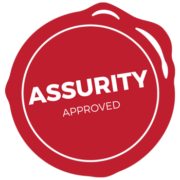Stress Management: Positive & Healthy Strategies
Can stress be managed in a positive and healthy way? Yes, it can!
Most of us would like to find better ways to manage the stress in our lives. Our bodies and brains are designed to respond effectively to a certain amount of stress, but while some stress can be a positive motivator of action, it needs to be managed before it begins to cloud our thinking or negatively impact our health and lives.
One way to respond effectively is to identify the problem that may be contributing to the stress and evaluate potential solutions. Asking yourself questions such as, “What am I really experiencing? What thoughts might be triggering this response in me? Where am I physically feeling stress in my body right now?” can help you refocus and gain perspective.
Stress Strategies is a free, online, interactive tool developed by the Psychology Foundation of Canada. Stress Strategies looks at stress as a problem that can be addressed, or at the very least, improved. The resource allows you to identify what you are experiencing and then provides simple but meaningful strategies to help you gain a sense of control over the stress in your life.
Another approach that could help with stress reduction is the 8-minute video Exercises for Stress Reduction & Deep Relaxation, offered by Michael Apollo through the University Health Network. Focusing on your breathing and body awareness may help regain a sense of control over your thoughts.
Chemicals and hormones are released into our body when the stress response is turned on. This can lead to significant health issues if left unchecked. While there are many different resources and strategies for managing your thoughts and reactions to stress, it is most important that you find the solutions that work best for you. Whether it is using a decision-making tool like Stress Strategies, deep breathing exercises such as those shared by the University Health Network, or simply a walk in nature, managing stress more effectively can have a significant impact on your long-term well-being.





